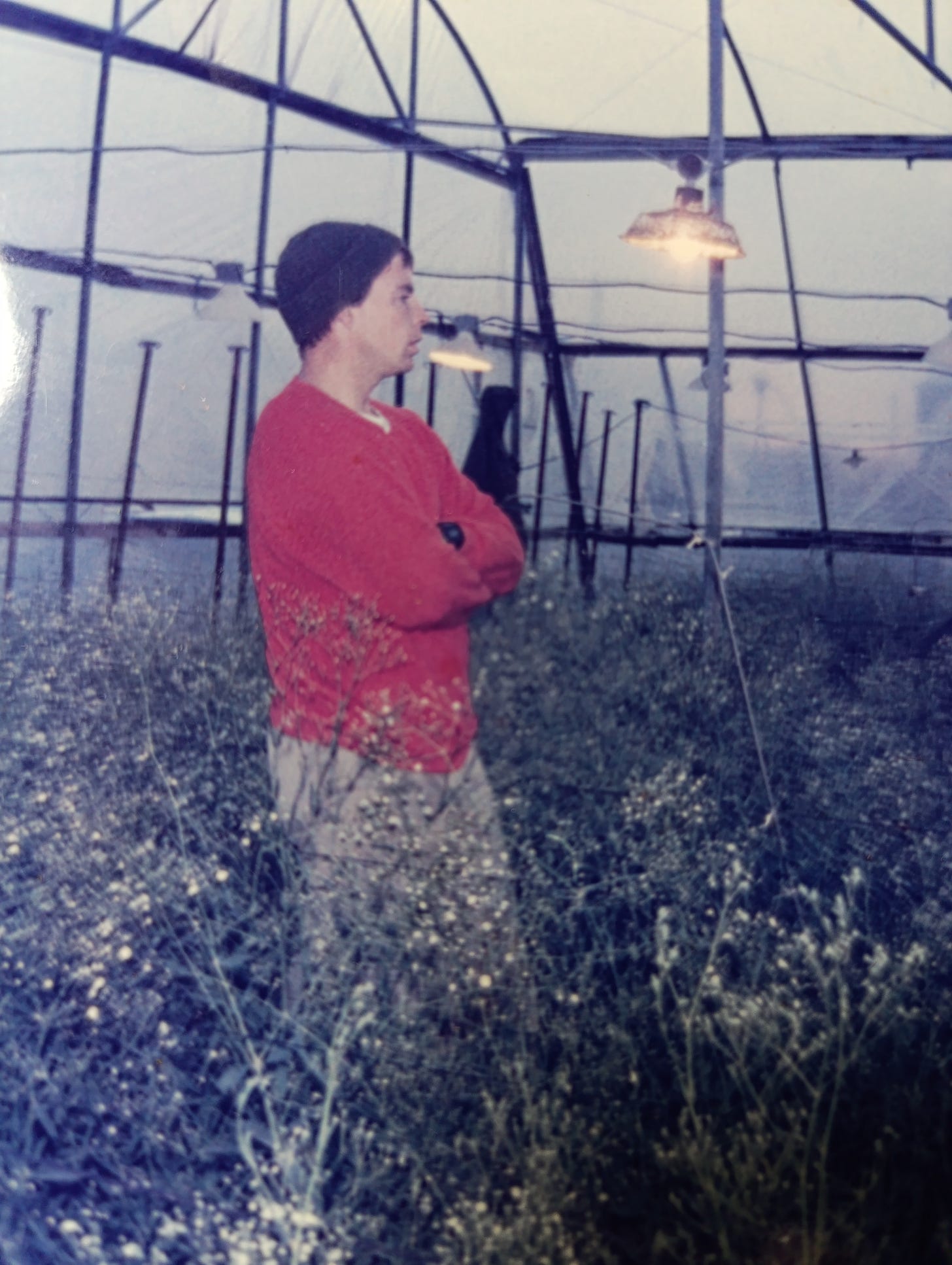Gush Katif: A Good Place
I was livid. Rumors of corruption at the flower shipping center near Netivot had been swirling, but I didn’t believe them until my best flowers, at their peak, were disqualified as unfit for export. A trusted friend urged me to act. “Get over there now and check for your flowers,” he said, noting that disqualified blooms were slated for destruction. I raced to the center and spotted my baby’s breath on a pallet—gorgeous cones of soft white petals, like popcorn, unmistakably mine. The thieves hadn’t even bothered to remove my farmer’s sticker with my name and grower number; they just slapped their own alongside it.
Noticing me, someone in the office stirred. I stormed upstairs, recalling my friend’s advice, and confronted the secretary. “I’m here to take my flowers,” I said.
“They’ve been destroyed,” she replied coolly.
“Destroyed? They arrived less than thirty minutes ago,” I shot back.
“Yes.”
“Then show me.”
“Why?”
“I spent three months growing them. I want to say goodbye.”
Her tone shifted, betraying unease. “Let me call the floor manager.”
“No need,” I said. “I’ll show you my flowers.”
She followed me silently to the pallet, where I pointed to my sticker. My glare met her chutzpah. “Oh, there must be a mistake,” she stammered. “I’ll fix it.”
Just like that, three months’ worth of income hit my bank account. I had no more issues that season, though I had to let go of two smaller shipments previously “disqualified.” As a second-year farmer, I was relieved to resolve the issue, but the corruption persisted, targeting others. Private investigators eventually uncovered overwhelming evidence, yet the guilty parties fought back. It took over twenty years for a class-action suit to bring us partial compensation.
Driving back to Gan Or, I was consumed with rage. The culprits, farmers themselves, knew the harm they caused—stealing food from my children’s mouths to buy luxuries for their own. I pounded the steering wheel with each bitter thought. Arriving at Gan Or, I pulled into the main parking lot by the settlement offices to check the mail. I sat in my car, trying to calm down, unfit to face anyone.
A small tourist van parked beside me. Several elderly couples stepped out, likely heading to the synagogue or restrooms. One man, tall and robust despite his age, helped his wife down with tender care. He noticed me watching and smiled. I didn’t return it. His wife stepped onto the sidewalk, looked around, raised her hands, and proclaimed:
How goodly are thy tents, O, Ya῾aqov, and thy tabernacles, O Yisra᾽el! Like the winding brooks, like gardens by the river’s side, like aloes which the Lord has planted, and cedar trees beside the waters. (Numbers 24:5-6)
Still fuming, I nearly snapped, “What’s so damn good about them?” But her husband’s subtle gesture stopped me—a raised hand, calloused like mine but etched with decades of farming. His brief, knowing look spoke volumes: You think you’re the only farmer to face hardship? That’s farming. The measure of a farmer is how he handles the rough patches. If you can’t, find another trade. My greenhorn hands paled beside his weathered ones. He nodded toward his wife, as if to say, “Listen to her.”
My perspective shifted instantly. I stood, eager to hear more. She didn’t disappoint.
“The light! The quality of the light! The breeze on my face! The impossible greenery on this sand!” she exclaimed, twirling like a ballerina. “All of this is good. This is a good place.”
“You’re like a priestess blessing Gan Or,” I said, half-laughing.
She chuckled. “No, my husband’s the priest. He does the blessings. Come closer—he’ll bless you.”
Embarrassed, I glanced at her husband, expecting reluctance. Instead, he beckoned me forward. I bowed my head as he intoned:
The Lord bless thee, and keep thee:
the Lord make his face shine upon thee, and be gracious to thee:
the Lord lift up his countenance to thee, and give thee peace.
And they shall put my name upon the children of Yisra᾽el; and I will bless them (Numbers 6:24-27)
“Amen,” I murmured, thanking them hastily before heading to check the mail. Flipping through bills, I regretted my abrupt departure. I jogged back to say a proper goodbye, but their van was gone.
Standing there, blessed in a blessed place, I thought: Gan Or is good. Jews living in Gan Or is good. Jews living in Gaza is good.



Beautiful post. Eyes leaked a little at the Blessing. You've got great stories.
Ehud, my friend, if I could write like you do, I never would have wasted so much time in law school! This is a beautiful piece. Thank you.